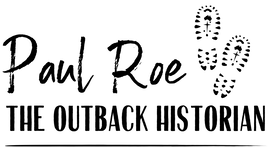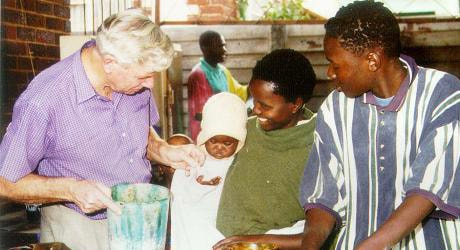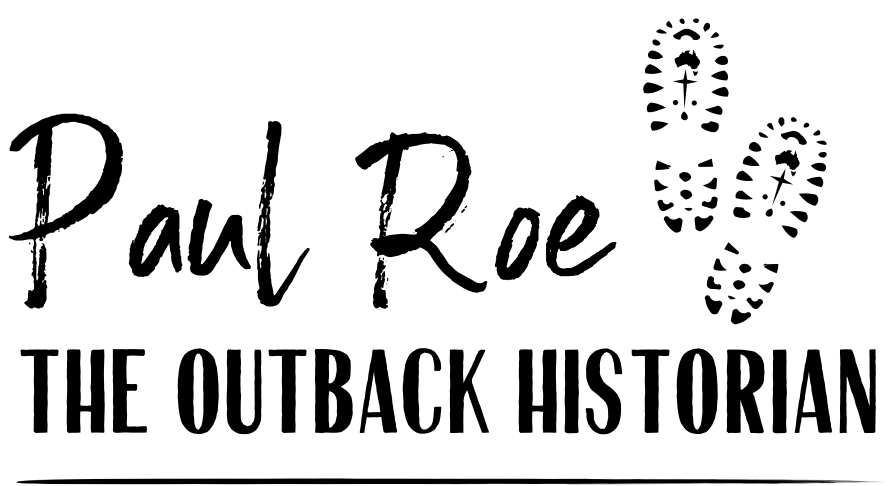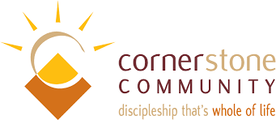|
I first met David Bussau in Narromine in the Far West of NSW. He was flying in the Outback Patrol Cessna visiting isolated inland towns. I was impressed that this successful entrepreneur would make that kind of effort. Quietly spoken and unassuming, he sat for an hour sharing his story with 20 or so local men over dinner in the RSL Club. A friend was working with Opportunity International, so I was keen to meet the man who had dreamed up the radical idea of micro-enterprise in the first place. Simon was advising people living in the rubbish tips of Manila on starting their own businesses and I’d heard moving stories of people being liberated from crushing poverty. Hearing David tell the story of his single-handed climb out of a difficult past showed me the beating heart of the movement he pioneered. A friend and I later had lunch with him in Centennial Park in Sydney and he gave himself freely to discuss entrepreneurial plans we were making. I felt honoured that he gave us time. It was the measure of the man – maintaining a vision for the world and having time to focus on individuals. Picture a small boy left alone at the gate of an orphanage. He walks up the drive carrying all his possessions in a single suitcase. Over the next decade he learns the discipline of farm-work. He survives systematic bullying and abuse by lateral thinking and learning to position himself to take advantage.
He walks back out the gate alone, a sixteen-year-old determined to be more than a statistic. Nobody was going to order him around anymore. In his own words ‘I set about building a framework around me that enabled me to call the shots and make decisions about my life.’ Without family to back him, he accepted he would have to pay for his own mistakes. He was determined to retire at 40. The young lad had learned to be a pragmatist and risk taker and became a teenage entrepreneur, first a hot dog stand, next a fish and chips shop, then a bakery and at 25, a food distribution company. Managing his own construction business in Sydney at 35 saw him a successful, but deeply unsatisfied millionaire ‘just building my own kingdom’ as he put it. When Cyclone Tracey devastated Darwin on Christmas Day 1974, David Bussau plunged into the recovery work with a team of his tradesmen. As he worked in the wreckage he says he learned his most important life-lesson, ‘the economics of enough.’ He concluded he could do something more significant than just making money, so he took the radical step to sell his businesses and endow a foundation called the Maranatha Trust. Its purpose was to generate capital for community work. In spite of parental desertion and a joyless childhood in a church institution, David somehow knew God was a father who not only loved him, but who had made a real investment in him and expected a return. He decided that the painful extremes of a violent home and tough times at the church orphanage had been given to equip him with acute tactical skills to see solutions, not problems. David’s fearlessness in responding to natural disasters taught him a further lesson. It hit him that the two years he spent rebuilding a village in Indonesia ruined by an earthquake, hadn’t touched endemic debt and poverty that crippled that community. It dawned on the former hot dog stand owner that small enterprise was the solution. He decided to give a hand-up, rather than a hand-out and saw the transformative effect of a micro-loan to a single, dis-empowered family. It dignified them with their own business, which in turn sustained others. That experiment birthed Opportunity International – a scheme of micro-enterprise development that now creates a job every 30 seconds around the world. Every year, millions of loans to the poor in countries like India and Indonesia, equip entrepreneurs who will create jobs. They have a higher than 90% record of repaying their loans. David challenged the conventional thinking that poverty is inevitable. At first, the Aid community ridiculed his idea that among the poor there were many creative people who need not be doomed to be perpetual dependents. Experience had shown him that human beings made in the Creator’s image have the capacity to be incredibly productive. It was those who realised this, that were making a difference in the world. Opportunity International’s grassroots methods that freed people from borrowing in order to survive, were backed by World Bank statistics. They declared it one of the most effective and sustainable ways of ending chronic dependency. This was endorsed by a Manchester University study showing that on average, each job created took six people out of permanent poverty. During his lifetime, the deserted orphan boy has won numerous high-level Australian awards for his creative thinking on behalf of the poor. But David Bussau is more energised by the possibility of supplying the means to end poverty everywhere, one community at a time. That makes him a true champion of the world. He is forthright about using God-given resources. “I am of the opinion that he blesses us only in order that we will bless others. For me the key word is ‘release.’ Let go. God’s not interested in what we do in order to achieve; he’s really only interested in what we let go of in order that we can draw closer to him.”
0 Comments
Leave a Reply. |
AuthorJoin The Outback Historian, Paul Roe, on an unforgettable journey into Australia's Past as he follows the footprints of the Master Storyteller and uncovers unknown treasures of the nation. Archives
October 2023
Categories
All
|
|
Sponsored by
|
Privacy Policy
|
|
Copyright 2020 by The Outback Historian
|
Site powered by ABRACADABRA Learning
|


 RSS Feed
RSS Feed

